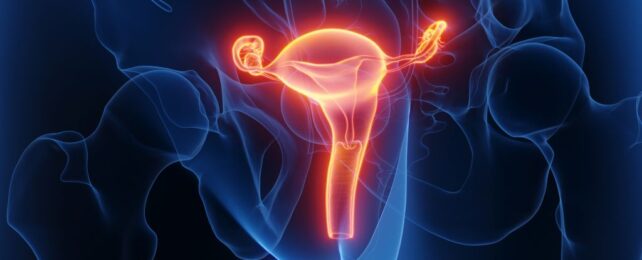In a study of 12,000 volunteers in the UK, scientists established a clear link between long COVID – that is, symptoms of COVID-19 that persist long after the infection has cleared – and disruption to the menstrual cycle.
Moreover, the link may go both ways: just as long COVID can affect the menstrual cycle, menstrual symptoms may exacerbate the symptoms of long COVID.
Related: In a First, Scientists Found Structural, Brain-Wide Changes During Menstruation
It's a concerning feedback loop, but the good news is that this information may lead to better treatment.
"Reported menstrual flow volume, menstrual duration (more than eight days), intermenstrual bleeding, and missed episodes of menstruation were significantly increased in those with long COVID versus no COVID," the researchers write in their paper.
"In contrast, in those with previous acute COVID, only menstrual volume was increased, but did not reach statistical significance."
Many have reported noticeable changes to their menstruation in the wake of the COVID-19 pandemic. Research into a possible link has been patchy at best, with a heavy focus on vaccination. However, a 2023 paper found that menstruation changes are no different between groups distinguished by vaccination.
In a follow-up investigation, a team led by gynecologist Jacqueline Maybin of the University of Edinburgh in the UK surveyed individuals in the UK who menstruate, comparing those with long COVID (1,048 people), those who had acute COVID-19 (1,716 people), and controls who never contracted COVID-19 at all (9,423 people). These patients answered questions about their menstrual cycles.
The results showed the most substantial menstrual changes, including longer menstrual periods and abnormal bleeding between periods, in the group with long COVID.
Patients in this group also reported experiencing more severe long COVID symptoms starting two days before their menstrual period, and continuing for the duration of the period. These symptoms include fatigue, brain fog, memory issues, and post-exertional fatigue.
The next step was an investigation into what could be causing this. The researchers collected blood serum and endometrial tissue from 10 individuals with long COVID and compared these samples to those from healthy control patients. The results suggest that endometrial inflammation and hormonal disruption play a role in menstrual disruption associated with long COVID. Ovary function remained healthy.
The results indicate avenues for further study, as well as a need for more tailored treatments both for menstrual disruption and long COVID for anybody menstruating, the researchers say.
"This study provides evidence of an association between long COVID and abnormal uterine bleeding that may be the result of increased androgens and an altered endometrial inflammatory response at menstruation, warranting further investigation," they write in their paper.
"We also reveal an association of increased severity of long COVID symptoms with the late secretory/menstrual phase of the menstrual cycle, when progesterone levels rapidly decline. This may be explained by increased cytokine production during the menstrual phase, which was greater in those with long COVID than in controls."
The research has been published in Nature Communications.
